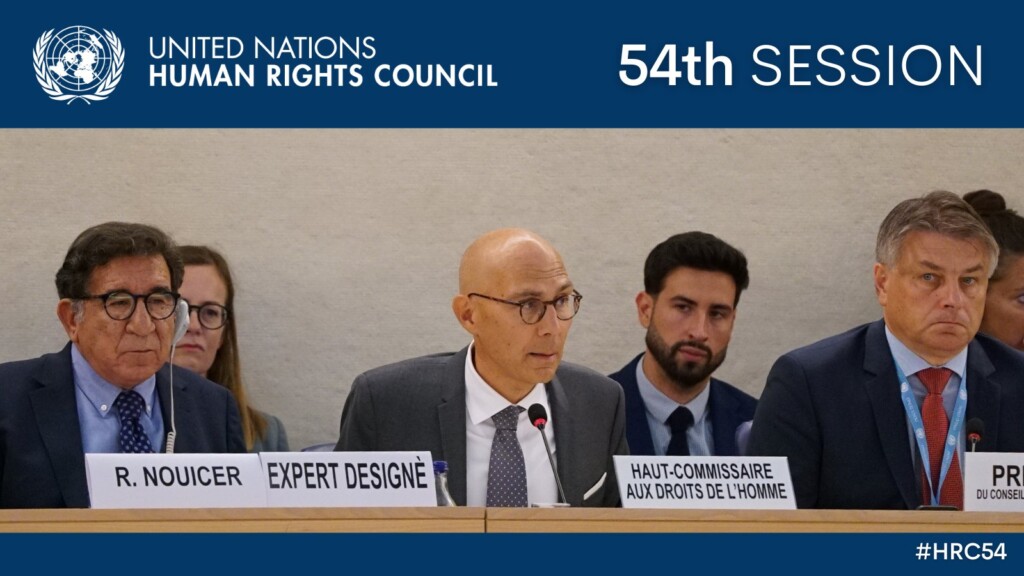OHCHR adopts resolution for new Sudan investigative committee

UN Human Rights Council chief Volker Türk calls for "the horrific conflict to stop before it is too late to pull Sudan back from disaster" on September 12 (Source: OHCHR)
The United Nations Human Rights Council (OHCHR) adopted a resolution to form a fact-finding committee on crimes and violations in Sudan after the outbreak of war, by a majority of 19 votes to 16, with 12 member states abstaining. The decision was made during the OHCHR’s 54th session yesterday.
From next week onwards, President of the Human Rights Council Václav Bálek will begin consultations with member states and organisations to form a fact-finding committee which was submitted by the USA, UK, Norway, and Germany last week. The committee will consist of an expert three-member state investigation mission.
These experts will be tasked with providing information about what happened in Sudan, the dimensions and dynamics of the problem, as well the parties involved in the conflict. It will determine also determine who is responsible for various violations and crimes, identify those responsible, and prepare to hold them accountable in the near future.
US OHCHR Representative Michèle Taylor states that Sudan’s situation has turned “from bad to catastrophic”, necessitating the intervention of the international community.
According to the OHCHR, the new monitoring mechanism will be critical in highlighting problems and offering appropriate recommendations.
Abdelbagi Jibril, head of the Darfur Centre for Aid and Documentation, told Radio Dabanga that the decision is balanced, realistic, and commensurate with the situation in Sudan, and is “in the interest of the victims in Sudan”.
He continued: “Their decision stipulates the establishment of a fact-finding committee to find out what happened in Sudan. This will help the world to understand the true situation, in preparation for the next steps”.
Opposition
The list of countries rejecting the decision includes the Emirates, Qatar, Morocco, Algeria and Somalia from the Arab group, along with China, Malaysia, Pakistan and other Asian countries, in addition to Ivory Coast and Eritrea from the African group, with African and Asian countries abstaining from voting. On the other hand, the European community, the US, and South America bloc voted in favour of the resolution.
Sudan’s Ministry of Foreign Affairs issued a statement last week in which it rejected the draft resolution because it “equated the role of the Sudan Armed Forces, with that of the Rapid Support Forces”.
“The vote reflects a deep division within the Council regarding the issue.” said Sudan’s representative in the Human Rights Council.
“Those that rejected the resolution are those that adhere to the United Nations charters and reject politicisation and double standards.”
Jibril told Radio Dabanga that “the moral value of the decision would have been greater if it had been adopted unanimously”. However, he believes “the presence of all member states at the session reflects the world’s interest in Sudan’s current situation”.
He stressed that opposition and abstentions were made according to political dimensions unrelated to human rights.








 and then
and then